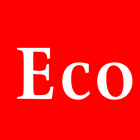
2016-1008 | The Economist-039
介绍: Nigeria’s self-publishers: Fifty Shades, Sahel-style
Northern Nigeria’s subversive love literature
From The Economist 20161008
0:00
A FEW minutes into Kantin Kwari market, sandwiched between the stalls selling grain and those hawking second-hand shirts, is a little alleyway where girls flock for adv...
介绍: Nigeria’s self-publishers: Fifty Shades, Sahel-style
Northern Nigeria’s subversive love literature
From The Economist 20161008
0:00
A FEW minutes into Kantin Kwari market, sandwiched between the stalls selling grain and those hawking second-hand shirts, is a little alleyway where girls flock for advice. It is in short supply in Nigeria’s mostly Muslim north, where women are poorly schooled and married off at their fathers’ behest, often as children. Those with wedding woes or family dramas could do worse than consult the littattafan soyayya, or “love literature”, flogged by booksellers there.
Written in Hausa, these romantic novels are the work of mostly female authors, who have been printing their own works in Kano since Nigeria’s publishing industry fell apart in the 1980s. They are not exactly “Fifty Shades of Grey”, the West’s self-published sex sensation of recent times: many are classic Cinderella stories or pious parables about housewifery. But there are also blistering tales of child marriage, polygamy and philandering; subversive stuff for a conservative region.
This is sadly familiar to many of the authors. Balaraba Yakubu, a pioneer of the industry, recounts how she was removed from school to be married at 13. Another writer, Sa’adatu Baba Ahmed, had to marry her late husband’s polygamous brother. They say their books can teach lessons about equality that girls do not learn in school—if they go there at all. In some parts of northern Nigeria there are three boys in class for every girl. “A lot of women in our culture do not have a voice,” Ms Yakubu explains.
As with Charles Dickens in Victorian England, soyayya books are often serialised. The poor can snap them up for as little as 50 naira ($0.15) in open markets, where the most popular authors sell tens, or even hundreds, of thousands of copies. Abdulkadir Dangambo, a local professor, says that more books are now printed in Hausa than in any other African language. Some are made into local movies; and self-publishers turn into agony aunts as they field calls from fans.
That does not mean their stories go down well with the Muslim morality police in Kano, where a governor once incinerated a collection of their “pornographic” pages. State officials accused Ms Ahmed of being bribed by foreigners after she wrote about an HIV-positive character with a taste for prostitutes. The censorship board often removes writers’ steamier scenes. No surprise that many prefer to bypass the formalities and publish what they want from roadside stands. “Someone has to tell people about these things,” shrugs Ms Ahmed.
Copyright © 2015-2016 Share2China.com | Powered by Flask and MongoDB

